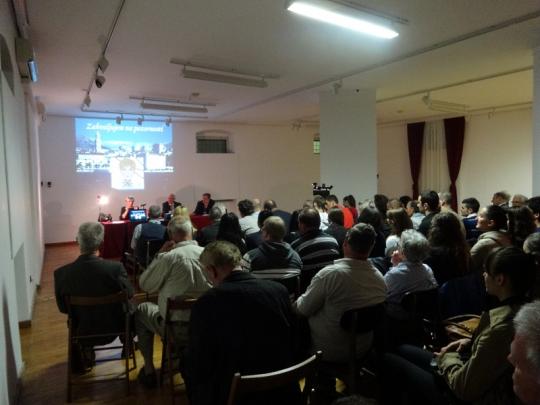5 November 2013 - Invited by Professor Davorin Rudolf, Fellow of the Croatian Academy of Sciences and Arts and Head of the Scientific and Artistic Institute in Split, Professor Dr Jasna Omejec, President of the Court, gave a lecture today entitled Facts and misconceptions of the Constitutional Court's role in the processes of transition and Europeanization of Croatian law. In her lecture held in Miles Palace in Split, she recalled the fundamental role of constitutional courts in the post-communist states, where the constitutional judiciary found itself amidst national and European law. She pointed out to a confusion in legislative, and in general, regulative system of our country and to the troubled state of our judiciary chained in the textual or grammatical positivism, as well as to the strong lack of understanding of the constitutional court's role since the Croatian society still does not except the fact that the constitutional judiciary supervises the legal frame of the state created by the political power. At the end she emphasised the need for the general improvement of political culture and necessity for spreading the awareness of democratic values and for constant learning. Her final remarks were pointed at the retrograde process of deconstitutionalization of the constitutional judiciary in Hungary, which has revised its Constitution eighteen times since 2010. In the most recent revisions, the legislator has among other things also introduced lustration measures 20 years after the fall of the totalitarian regime in the country, and, at the Constitutional level, reintroduced the legal provisions which the Constitutional Court had previously found unconstitutional and repealed, thereby excluding them from the constitutional review. Furthermore, it placed out of legal force all the decisions of the Constitutional Court delivered prior to entering into force of the new Constitution (March 2013). Although the effects of these decisions were kept alive, the Constitutional Court cannot refer to its established practice in the future. These constitutional revisions received negative critique not only by the Council of Europe and Venice Commission but also the European Union. They found them threatening to the principles of separation of power, rule of law and democracy.
